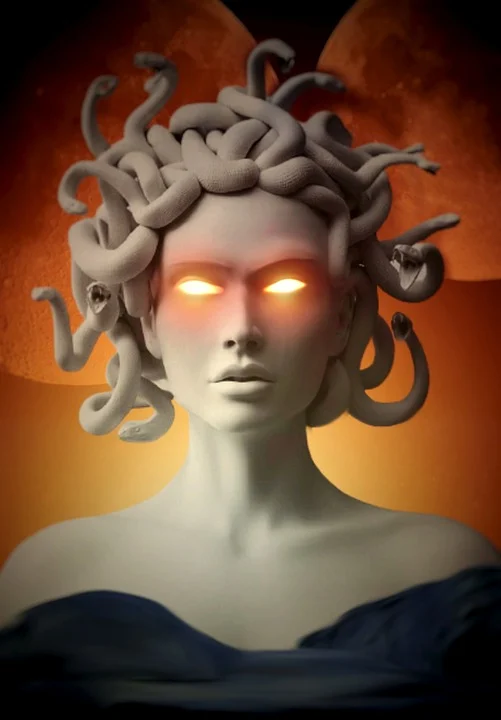Ancient Greek myths are some of the most popular out there, and many have put it down to the intriguing selection of scary creatures. Ancient Greece has taught Western culture a great deal of lessons regarding morals and respect. Not only that, but the culture as a whole inspired a significant amount of modern technology and scientific advancements.
Because of the influence that Ancient Greece has had on the modern world, it is important to consider the impact that certain myths have had. These are some of the most common Greek myths that are still highly popular today. Some have even influenced iconic artwork as well as dramatic representations.
Perseus And Medusa
Firstly, Medusa was a widely feared figure in Ancient Greece. She was one of three gorgons with the face of a woman, and could turn anybody that looked directly at her into stone. She was a mortal who was cursed by Athena to have a head full of snakes, eternal life, and turning anyone who looks at her into stone.
In order to save his mother, Perseus was ordered to kill Medusa. This was done using a magic sword provided by Hermes, and with the reflection of a polished shield from Athena. Winged sandals and a cap of invisibility were also received during this quest. Eventually, Perseus found Medusa while she was sleeping.
Without looking directly at her, Perseus severed Medusa’s head and returned it to Athena in order to save his mother.
Theseus And The Minotaur
Another Greek myth that is commonly told or referred to today is Theseus and the Minotaur. In a dungeon of Minos’ palace, there was a carefully constructed maze in which the Minotaur was. This creature was half man and half bull, and ate children.
Theseus was given a magic string in order to find his way back after killing the Minotaur. After successfully entering the maze and killing the creature, Theseus retraced his steps with the magic string and saved captive Athenian children from the maze.
On the way back to his father, Theseus had forgotten to change the sail color to indicate that his journey was successful. As a result, Theseus’ father, Aegeus believed that his son was dead, and threw himself into the sea. Ever since, this was known as the Aegean Sea.
Icarus
Most commonly known as the boy who flew too close to the sun, Icarus is an example of a moral warning. Having placed the blame of the Minotaur’s death on Daedalus, Icarus’ father, and the one who invented the maze which it had been trapped in, was kept prisoner.
Daedalus was given no food or water, and kept at the top of the highest tower in the palace at Knossos. However, he was cunning and determined to provide a better life for his son Icarus. This happened when the two collected feathers from sleeping pigeons on the rafters and wax from an abandoned bee hive.
Thanks to the leather straps of their sandals, they crafted wings and were able to escape. They beat the wings over their shoulders and flew towards Sicily. However, Icarus was warned not to get too close to the sun and melted the beeswax that was the foundation of his wings.
Despite the warning from his father, Icarus did not listen. His wings fell off after flying too close to the sun, and he fell and crashed into the sea.
Jason And The Argonauts
After demanding that his father was reinstated as the rightful king of Iolcos, Jason was sent to Colchis on the Eastern coastline to find a magical golden fleece. He gathered some help before heading on this journey, and they sailed on the Argo ship. Hence, they were Argonauts.
Once the crew eventually reached Colchis, the king was unwilling to give up his golden fleece and set Jason the task of plowing a field using dragon teeth. This was thought to be an impossible task, but Jason was given divine intervention. The king’s daughter Medea fell in love with Jason and aided with the task.
She then sang the dragons who were guarding the fleece to sleep, and helped Jason with his quest. After sailing back to Iolcos, Jason, Medea and his crew of Argonauts claimed his father’s throne back from his greedy uncle.
Summary
There are many myths within Ancient Greece that are interesting for a range of reasons. The mythical creatures and moral lessons taught are unique, and it is certainly worth learning more about these.

